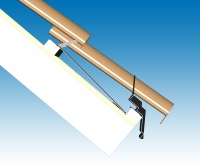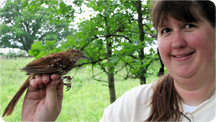After three years of drought in India’s Keoladeo Ghana National Park, water levels are again at their ideal level and the migratory birds are back – and they’re staying.
Each year thousands of birds spend the winter months in the park, near the town of Bharatpur in Rajasthan. Birds migrate from far away locations including Europe, Siberia, Mongolia and China. At least 230 different species of birds overwinter in the park.
A good monsoon season last year has again filled the wetlands in the parks with enough water to sustain the abundant bird life. And park officials say that because of the water, the birds are staying in the park longer than usual this year.
The park gets its water from the Gambhir River, which is controlled by a dam. The dam diverts water for agricultural use. The park requires 550 million cubic feet of water each year to maintain normal levels. In 2004, the government diverted water meant for the park to local farmers. Because of this the park was only supplied with 18 million cubic feet of water. The land turned dry and most of the birds relocated to alternative locations with ample water, up to 100 km away from Keoladeo.
This year, an increase in the number of birds remaining in the park has also meant an increase in human visitors. The park is located on nearly 30 square kilometers of wetland, forest and scrubland. Declared a protected sanctuary in 1971, it is one of the most popular natural parks in India. The park is also a UNESCO World Heritage Site.
Sources:
Keoladeo National Park on Wikipedia
Migratory birds attract huge crowds at Rajasthan’s Keoladeo Park



 In order to give the sparrow abundant nesting areas in neighborhoods, the roofing firm
In order to give the sparrow abundant nesting areas in neighborhoods, the roofing firm 